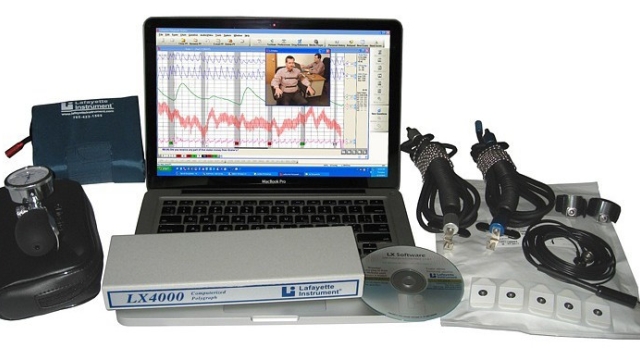
The Truth Behind Lie Detectors: Unmasking the Myths
- by Jose Bryant

Lie detector tests have long been a popular tool used in various settings, from criminal investigations to employment screenings. The idea of a machine being able to detect lies based on physiological responses can seem like something out of a spy movie, but the reality is not quite as glamorous. Despite their widespread use and portrayal in media, lie detector tests, also known as polygraphs, have been met with skepticism and controversy.
While many may believe that lie detectors are foolproof instruments that can accurately uncover the truth, the reality is far more complex. The accuracy of lie detector tests has been widely debated, with critics arguing that they are not reliable enough to be used as definitive evidence. As we delve deeper into the world of lie detectors, we will explore the science behind these tests and separate the facts from the myths.
History of Lie Detectors
The concept of lie detection dates back hundreds of years, with early methods involving superstitions like having suspects swear oaths or rely on the idea that physical signs could indicate deceit.
In the early 20th century, advancements in psychology led to the development of more scientific methods to detect deception. This gave rise to the polygraph test, which measures physiological responses such as heart rate, blood pressure, and respiration to determine if someone is lying.
Over the years, the use of lie detectors has been controversial, with critics questioning their accuracy and reliability. Despite ongoing debates, lie detector tests continue to be used in various settings, including law enforcement, employment screenings, and national security investigations.
Accuracy of Lie Detector Tests
There is a common belief that lie detector tests are foolproof in determining whether someone is telling the truth or not. However, the accuracy of these tests has been a topic of debate among experts in the field. While polygraph tests can measure physiological responses such as heart rate, blood pressure, and perspiration levels, there is no definitive scientific evidence to prove their infallibility.
One factor that can affect the accuracy of lie detector tests is the individual’s ability to control their physiological responses. Some people may be able to manipulate their heart rate or sweat gland activity, leading to misleading results. Additionally, factors such as anxiety, stress, and fear can also influence the readings of a polygraph test, making it challenging to determine the true accuracy of the results.
It is essential to consider that lie detector tests are not admissible as evidence in a court of law in many jurisdictions due to their questionable reliability. While these tests can be a tool for gathering information and generating leads in investigations, they should not be solely relied upon to determine the guilt or innocence of an individual.
Ethical Considerations
Lie detector test
When it comes to the use of lie detector tests, ethical considerations play a crucial role in determining their validity and reliability in various settings. One of the primary ethical concerns surrounding lie detector tests is the invasion of privacy they entail. Subjects may feel pressured or violated when being subjected to a test that aims to uncover their truthfulness or deceit.
Furthermore, there is an ethical dilemma regarding the accuracy of lie detector tests and the potential consequences of false results. In some cases, individuals may be wrongly accused or punished based on the outcome of a test that is not 100% reliable. This raises questions about fairness and justice in using lie detector tests as a determinant of truth.
Additionally, the use of lie detector tests in employment screenings or criminal investigations raises concerns about discrimination and bias. Certain groups or individuals may be disproportionately affected by the results of these tests, leading to potential harm and inequality in the justice system. It is essential to consider these ethical implications when utilizing lie detector tests in decision-making processes.
Lie detector tests have long been a popular tool used in various settings, from criminal investigations to employment screenings. The idea of a machine being able to detect lies based on physiological responses can seem like something out of a spy movie, but the reality is not quite as glamorous. Despite their widespread use and…